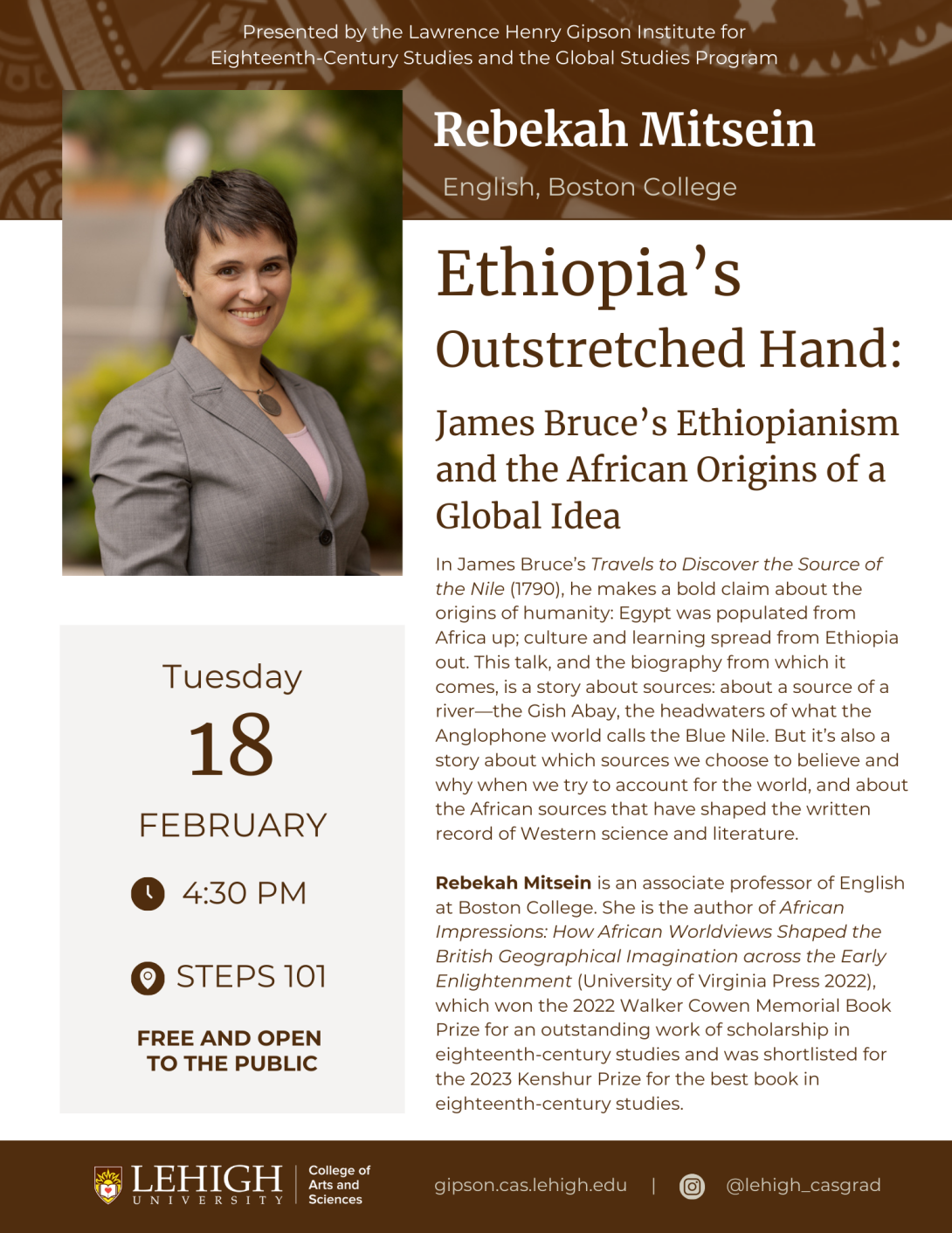In James Bruce’s Travels to Discover the Source of the Nile (1790), he makes a bold claim about the origins of humanity: Egypt was populated from Africa up; culture and learning spread from Ethiopia out. This talk, and the biography from which it comes, is a story about sources: about a source of a river—the Gish Abay, the headwaters of what the Anglophone world calls the Blue Nile. But it’s also a story about which sources we choose to believe and why when we try to account for the world, and about the African sources that have shaped the written record of Western science and literature.
Rebekah Mitsein is an associate professor of English at Boston College. She is the author of African Impressions: How African Worldviews Shaped the British Geographical Imagination across the Early Enlightenment (University of Virginia Press 2022), which won the 2022 Walker Cowen Memorial Book Prize for an outstanding work of scholarship in eighteenth-century studies and was shortlisted for the 2023 Kenshur Prize for the best book in eighteenth-century studies. Her research and teaching interests include seventeenth- and eighteenth-century British and transatlantic literature and culture, with a particular emphasis on how Africa influenced European texts and thought. She is currently working on two book projects. One, called The True Story of the Abyssinian Liar, is a biography of the traveler James Bruce and the Ethiopian women he depended on during his time in Gondar. The other, African Thought and the Matter of Spirit, tracks how African cosmologies influenced eighteenth-century European scientific and theological debates about the nature of spirit and matter.
This talk is part of The Global Eighteenth Century Speaker Series co-sponsored by the Gipson Institute and the Global Studies Program.

